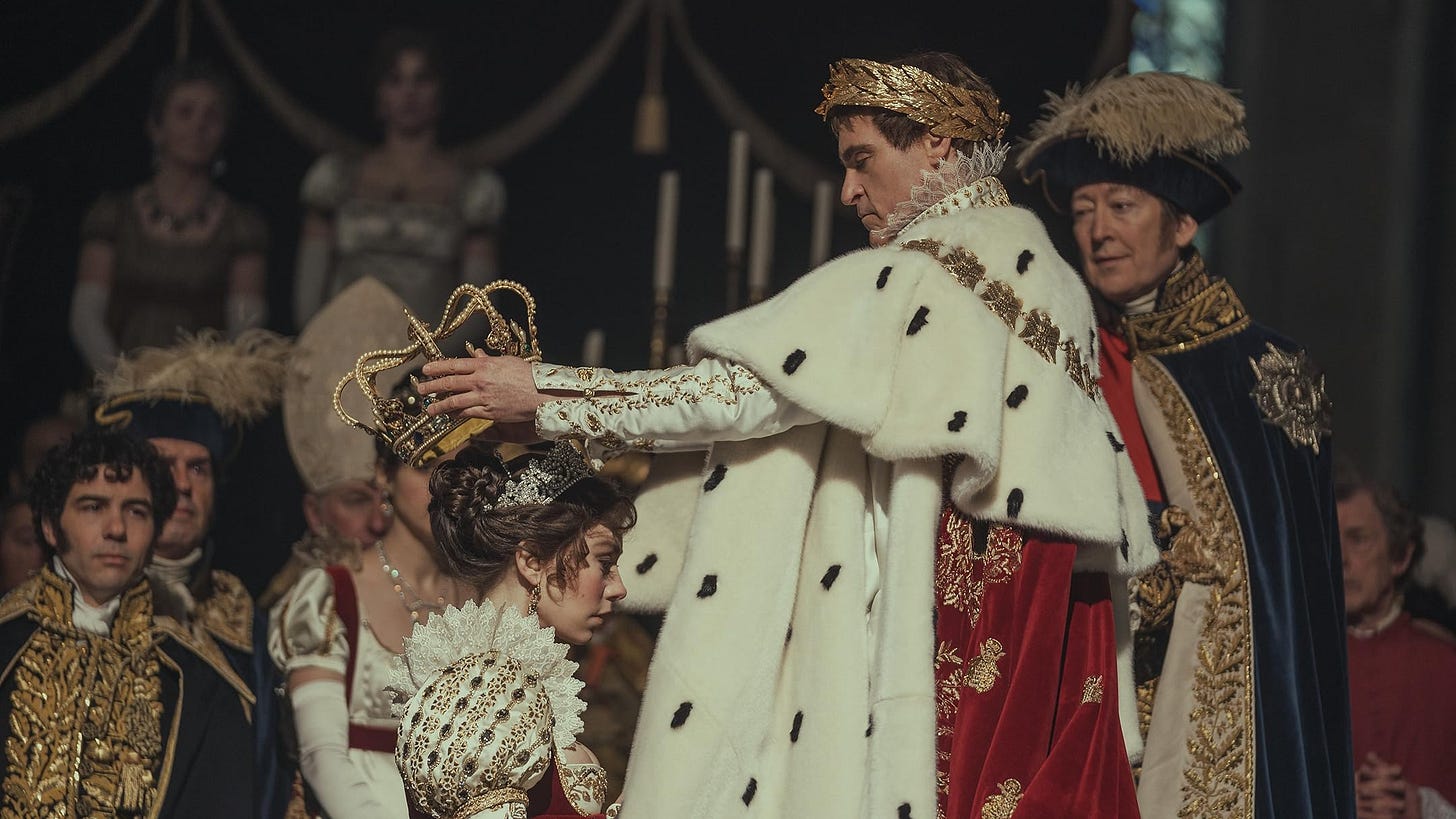‘Napoleon’ Review
You expect epic and get epic. You don’t quite expect the comedy.
I DON’T THINK AUDIENCES WERE EXPECTING Napoleon to be quite as funny as it is. At least, I know I wasn’t, and the shocked ripples of laughter that picked up steam as the movie went along at my midday post-Thanksgiving screening suggest the rest of the audience wasn’t either.
But Ridley Scott’s Napoleon is something like an epic tragicomedy, emphasis on the comedy. This is not the movie to watch if you’re looking for precise breakdowns of Napoleonic politics or strategy (though the political scenes are often quite amusing, and no one working today can shoot an epic battle sequence quite like Sir Ridley). Nor is it a typical Great Man Movie, or even an atypical Great Man Movie.
It is, rather, more like a farce, a look at the absurd vanity of greatness. It was not clear from the start that this would be the film’s main operating mode; in the early going, at the siege of Toulon, you get the sense that this could have been a slightly different type of movie. Napoleon (Joaquin Phoenix) sends his troops forward to capture the fort held by Royalists and their British allies; as they scale the walls, he gets antsier and antsier, finally diving into battle himself. No, Phoenix doesn’t quite resemble Maximus in Gladiator—Russell Crowe’s Roman general had a steely reserve that Phoenix’s twitchy Napoleon does not, even in this early sequence—but you can understand why he was a leader of men and why his men would follow him. A general on the front lines is always appreciated by his men (at least in the movies).
As the film progresses, however, the comedy piles up. There’s the moment where Napoleon retracts his offer of dessert to an underling who informs him that his wife, Josephine (Vanessa Kirby), is having an affair. Or the moment when he’s negotiating with the British and petulantly ululates in frustration, “You think you’re so great because you have boats!” Or the moment when France’s republican pols chase him from a meeting with their feet and fists and he scurries to his men screaming about how they mean to do him harm and thus he must claim the emperorship.
These sequences are all sold by the pleading look in Phoenix’s eyes, as if he cannot believe some new injustice is being done to him, and by the wheedling tone of his voice. Coming off of Ari Aster’s Beau Is Afraid, Phoenix has more or less set the bar for awkward guys trying to come off as slightly more impressive and competent and confident than they really are.
Again, I do not think this is the movie that Napoleon scholars of either the professional or amateur variety wanted. I’m not even sure it entirely works as an epic film in the mode of Scott’s Gladiator and Kingdom of Heaven; I am curious to see what the planned four-hour version for AppleTV+ that’s coming out after the two-and-a-half hour film’s theatrical release will look like. Perhaps it delivers a greater dramatic arc that some will find more satisfying than the comic stasis delivered by this picture as it currently exists.
But the movie playing in theaters now zips along despite its running time, the smoke-filled battle scenes look like beautiful, muddy chaos, and the performances were uniformly winning and amusing. In short, Napoleon delivers nearly everything I—a movie lover with no real interest in the meaning of Napoleon, The Man—am looking for in a motion picture.




